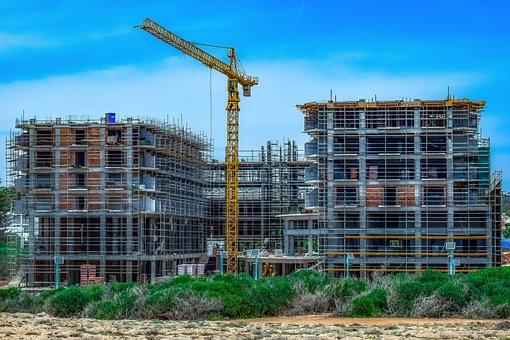What Are the Essential Elements for Large-Scale Construction Projects?
Large-scale construction projects require planning, coordination, and execution; all of which are incredibly complex processes. To ensure success in such efforts and complete projects within the planned timeline and budget, essential elements must be included. These include:
Proper communication and collaboration between stakeholders
Large-scale construction projects, regardless of their complexity and size require proper communication and collaboration to be successful. When stakeholders fail to communicate efficiently, the entire project can quickly unravel into chaos. Involving key stakeholders in the early stages is critical as it allows for all of their voices to be heard and provides an opportunity for sound decision-making.
Any issues that arise can also be addressed swiftly when stakeholders are involved, which helps to ensure that the project stays on time and on budget. Moreover, with good communication between stakeholders comes an improved organizational infrastructure that allows for everyone’s goals, interests, and objectives to be aligned. The ability for them to work together will result in a successful project and an enjoyable outcome for all those involved.
The proper equipment
Large-scale construction projects require an immense amount of heavy transport equipment and other logistical resources for successful completion. The heavy machinery used in construction must be reliable, efficient, and able to handle the heavy lifting and tough terrain necessary for these jobs.
This includes heavy haulers, bulldozers, excavators, graders, cranes, and other heavy machinery that can move large rocks and dirt. Additionally, this heavy equipment needs to be able to operate for hours in extreme temperatures as well as on hilly or steep surfaces. If a construction project is not properly equipped with the proper vehicles, it risks falling behind schedule or even having to shut down production altogether.
That’s why heavy transport equipment is essential for large-scale projects – ensuring they stay on track with minimal downtime.
A qualified project manager
Large-scale construction projects are complex endeavors that require careful planning, organization, and execution. To achieve success with such projects, one essential element is having a qualified project manager leading the team. A good project manager has the right mix of technical knowledge and skills, as well as an understanding of the specific project objectives and how to best reach them.
They must also possess sound interpersonal and organizational abilities to coordinate effectively with all stakeholders involved in the construction process so that everything moves seamlessly from start to finish. Having a qualified project manager on board is invaluable for any large-scale construction project because of their oversight and aptitude for anticipating potential issues before they arise.
A suitable system for managing risk
Risk management is an essential element for large-scale construction projects to ensure safety, project quality, and customer satisfaction. Effective risk management not only identifies potential problems that could derail the project but also outlines proactive steps to mitigate those risks.
Thorough planning with built-in contingencies established at key stages of the project is the basis for a successful risk management system. Strategies such as clear communication of goals and roles, detailed timelines, continual progress monitoring. And eliminating internal conflict can help bring about a successful completion without any major complications.
With an efficient system in place, contractors can confidently move forward with large-scale construction projects. Knowing they have the right tools to handle any unforeseen issues along the way.
A detailed management plan that incorporates construction timelines and budgets
Managing a large-scale construction project can be a daunting task. But it doesn’t have to be. It’s essential to have a detailed management plan that covers the entire scope of the project and establishes clear timelines and budgets.
A wisely conceived management plan cuts down on surprises. Keeps the stakeholders informed, ensures excellent quality control, and helps avoid costly delays or cost overruns. All these elements are of vital importance in any large-scale construction effort and they depend heavily on an effective problem-solving approach during unexpected disruptions throughout the project to ensure its successful completion.
With proper planning, overspending can be avoided, which is essential for staying on budget. In short, having a detailed management plan from the outset is essential for any construction project. Allowing you to manage your resources and stay on track with your timeline so that you can achieve success in the end.
Development of safety protocols for site operations
Large-scale construction sites are bustling hubs of activity and can be incredibly dangerous. Therefore, ensuring the proper development and implementation of safety protocols is an essential element in optimizing a successful project. The use of these protocols helps ensure safe working conditions and encourages compliance with regulations. Preventing unnecessary accidents that could cost time and money.
Additionally, it ensures that all parties have a clear idea of safety measures to be followed during a project. As well as disciplinary processes when protocol violations occur. Although many see safety protocols as cumbersome, they play an integral part in protecting both workers and projects. Ultimately making for a secure work environment resulting in successful projects overall.
Attention to these essential elements is paramount for any large-scale construction project to have a successful outcome.




